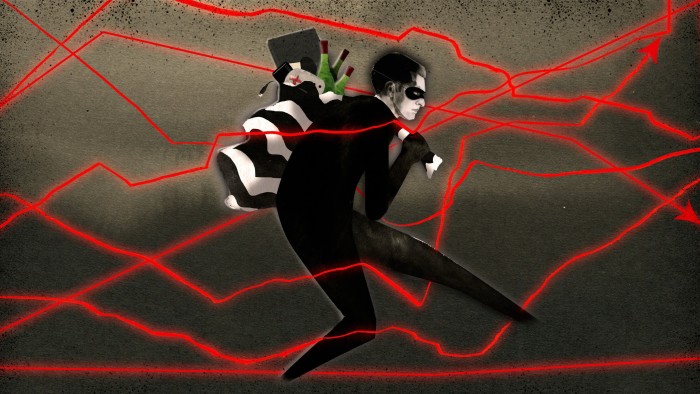Unlock the White House Watch newsletter for free
Your guide to what Trump’s second term means for Washington, business and the world
The writer is the author of ‘Gomorrah’ and ‘ZeroZeroZero’. For over 20 years, he has lived under police protection due to threats received from the Neapolitan mafia
Mafia leaders know that every economic decision that results in higher prices opens up a thriving smuggling market. The so-called “reciprocal tariffs” ordered by US President Donald Trump in April will see many more turn to smuggling. Mexican cartels, Italian criminal organisations, the Russian mafia and other groups already capable of trafficking illegal items into the US will now just as easily be able to smuggle legal ones. An immense new market — potentially comparable to Prohibition-era bootlegging — is appearing and organised crime stands ready to capitalise.
US history shows us what might happen. Take the Embargo Act of 1807 when Thomas Jefferson imposed a total embargo on foreign trade to put pressure on Britain and France. This brought a massive increase in smuggling, especially in border regions such as Vermont and Maine. When the Smoot-Hawley Tariff Act of 1930 increased tariffs on more than 20,000 imported products, Italian-American mafia organisations began to structure themselves as middlemen as many small traders turned to illegal routes to maintain profit margins.
Every tariff creates an appetite in the market that criminality steps in to satisfy. As price increases hit everything from game consoles to French wine to the textiles that already lie at the heart of smuggling operations, Trump’s tariffs will create more opportunities.
And when smuggling routes multiply, we know how goods will move: for example through the Mexican cartel Jalisco Nueva Generación, which is already accustomed to illegal fuel trafficking. In Utah in April, an American family was indicted for partnering with Mexican criminal organisations to smuggle nearly 2,900 shipments of stolen crude oil into the US. In 2024, a US company pleaded guilty to smuggling porcelain tiles from China and falsifying the origin as “Made in Malaysia” to avoid antidumping and countervailing duties.
Before Trump’s tariffs, the smuggling market was almost all about counterfeit products from Asia. US Customs and Border Protection data tells us of seizures of $2.8bn of counterfeit goods in 2023 and $5.4bn in 2024, due to demand for more affordable fashion products. Most of the goods come from China and Hong Kong, which together accounted for about 90 per cent of the total seized for intellectual property rights violations in 2024. These routes will now also be used for legal products and dutiable goods.
Increasing controls at ports is one solution but this will mean slowing down customs clearance. Criminal organisations choose ports not according to the level of corruption but according to speed; the faster a port, the more goods can be brought in without controls. The ports of Savannah, Georgia, Houston, Texas, and Long Beach, California, seem likely to be targeted by smugglers precisely because they are very fast in customs clearance. If they were to increase controls, they would slow down the efficiency of cargo transit.
And labelling will no longer be sufficient in proving that production of an item of clothing takes place in a specific country. It seems likely that China, which already manages around 40 ports in Latin America, will use them to bring Chinese goods into the US that appear to be produced in South America.
Is it possible that Trump really doesn’t know that tariffs will be a golden opportunity for smugglers? It may be that it doesn’t worry him because he is aware US companies need goods at pre-tariff prices in order to remain competitive. Smuggling could also provide him with a reason to keep up political pressure on foreign governments. While tariffs are his political move, smuggling will provide an illegal correction.
This would not be Trump’s first exposure to such thinking. His mentor Roy Cohn in the 1970s represented mafia bosses such as Carmine Galante, Carlo Gambino and Nicholas “Cockeyed Nick” Rattenni, and advised the Genovese crime family. Cohn knew there are legal and illegal ways to get things done. For criminal organisations, there are the laws followed by businesses and then there are the “rules” — standard procedures to make a profit. Trump’s formal tariffs are the laws. Meanwhile, an informal black market will follow the rules.
Smuggling will now become systemic. It will no longer be a strategy to obtain cheap or counterfeit products but a necessary method to stay competitive. And criminal organisations understand that the more the market demands smuggled goods, the harder it will be for customs to fight it. Eventually we will reach an equilibrium where smuggling in America becomes tolerated once again.


